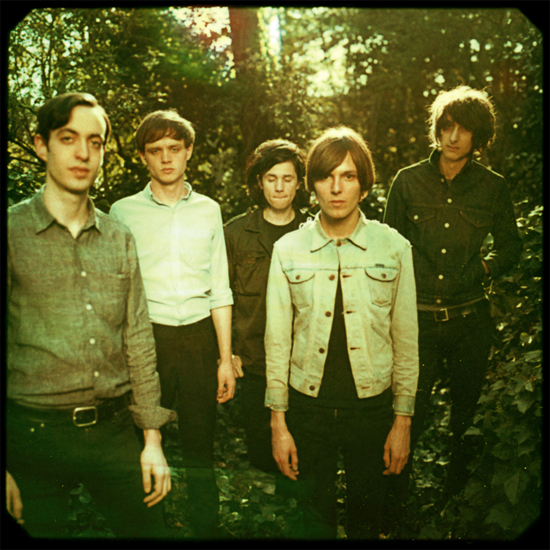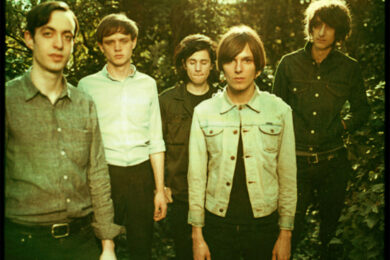Portishead’s Geoff Barrow is the man responsible for The Horrors’ bold decision to write, record and produce their third album entirely by themselves in a chaotic box of a room in East London. During the sessions for brilliant second album Primary Colours, he sat the band down in a Bristol curry house ("it was a nice curry house" says Tom Furse) and told them to go it alone: "It was a nice curry house," continues the Horrors’ synth man. "He said from what I’ve seen you don’t need anyone else, you can go away and do the next one by yourselves. He said ‘Just do it in a box’, we said ‘but we need a studio, Geoff’ he said, ‘no, just do it in a box.’ That seeded the idea, and though we’d thought of it to hear it from him was really encouraging." The Horrors had tried to go to the countryside to record, but things didn’t quite work out. "Rhys thought it might be fun to go to the country and really knuckle down," says Furse. "But it was a really uninspiring environment, it was beautiful, it was nice, down in Devon and we cooked wonderful meals, but I think maybe as people we just are more suited to the city. We did get ‘Moving Further Away’ from it, but it wasn’t as exciting or fruitful as this place." He says this is in part because The Horrors are a band who take essential energy from being in the capital. "Someone from National Geographic wanted us to talk about London and why we love it so much, and I was really up for it because it’s been my home my whole life, but I was trying to think of some places to take them, but I realised all the things I love are not material, it’s how the whole thing looks, it’s the people, I love the grotty back alley as much as I do the more beautiful buildings. It’s just intangible."
‘Changing The Rain’
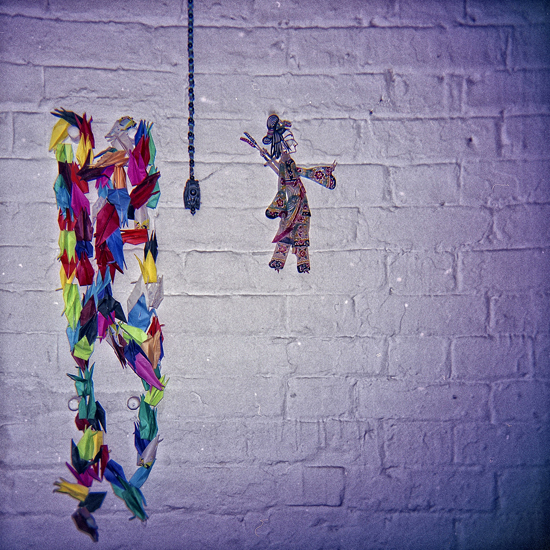
Skying opens with some of the altered balance swirling guitar that characterised Primary Colours, but under it is (and this is something that’s to be heard throughout the band’s third album) an almost baggy beat. But under it are heavy bass whumps like distant explosions through fog, and above unsettled whining guitars. There’s a great chorus too, but it’s delivered with a sense of dreamy escape, and then the synths get funky under handclaps and tamborine for the payoff.
There’s that huge boom. It’s this great pop song and then there’s that subsonic WHOOOOM, so I wanted to ask what that was about.
Josh Hayward: That was us being really urban. [laughs]
TF: That was Joe. We played the chorus and he just gave this huge whooooom!
JH: It probably worked really well, though. We just did this huge boom. These record label execs play the records through these big stereos that cost thousands of quid and you kind of think ‘What’s it gonna be like when we get it home?’ And we’ve got this like 1994, plug-it-into-your-speakers thing, that’s quite shit and cuts in and out, but you still got that effect through it. When I first heard that, that’s when I knew it was going to be interesting.
JH: When we were mixing it we did a lot of going into this other room that just had shitty iPod speakers in there set up so we could listen to everything through there, and that was the decider.
‘You Said’
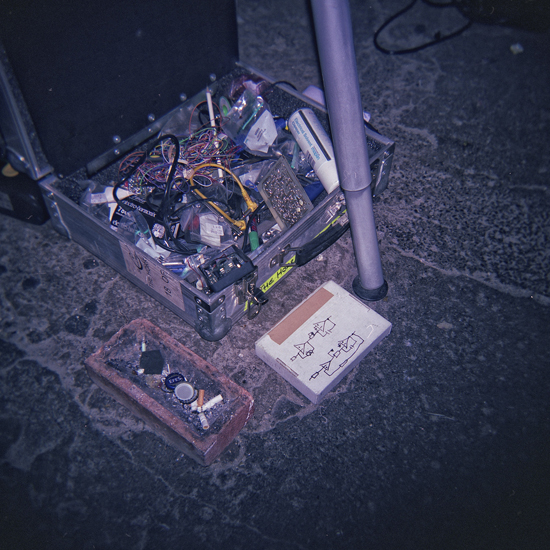
Again there’s a laid back feel to the drums, guitars buzzing around it like wasps around too many discarded bottles of rose on a summer’s day. It starts after a few synth chords that are then consumed by the rest of the song, which suggests a very different atmosphere to the neurotic passion of Primary Colours. This comes largely from the solidity of the bass and drums, which were recorded in a self-built drum cage in the studio.
I like the synth part at the beginning, and how it doesn’t really have much to do with the rest of the song
TF: I just kind of got really into effects and chord changes. That kind of came first and then the rest of it came after. It’s weird because it’s not really got anything to do with the rest of the track. It’s just there and it sets this mood that then changes very quickly.
I think it’s interesting when people are constructing a track and have a little prelude there.
TF: The whole track comes from these chords that all really melodically pull you in the same way.
I think the record is sequenced really well too – that’s not perhaps something you expect from a younger band.
TF: I think you have to take people on a trip, on a sonic journey. I encounter that sort of record label management interference of how a record should run, that the first track has to be a single and so on – not through us, through a friend – and I thought that’s so weird. And they went with it, which I thought was even weirder.
‘I Can See Through You’
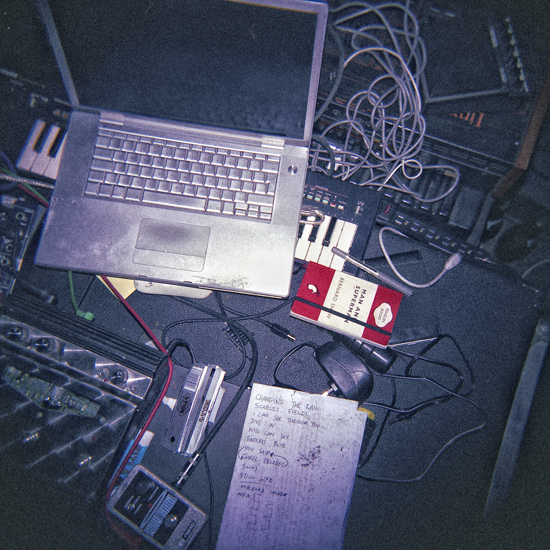
There’s certainly an early-90s, arch English feel to much of this record, and it starts with a keyboard line directly reminiscent of Pulp’s ‘O.U.’, from the ace Intro compilation, before a "woaah-aaah-woaaah" part kicks in. Cue also massive chorus, fairground giddiness, loads of guitars a-grinding.
‘I Can See Through You’ seems to have a similar feel to Primary Colours. Were some of the songs parallel to touring that, or was it kind of Year Zero?
JH: We gutted it, really. We can’t really write on tour, anyway, because we’re all playing at each other very loudly.
TF: You don’t really have the time. Everything came out good, though. We don’t make any decision, though, like ‘Nothing we’ve ever done before can we do again. We can’t revisit any of these ideas anymore. They’ve happened.’ It’s not like that at all. Whatever record we make next is always a very natural evolution, but things do creep back in.
‘Endless Blue’
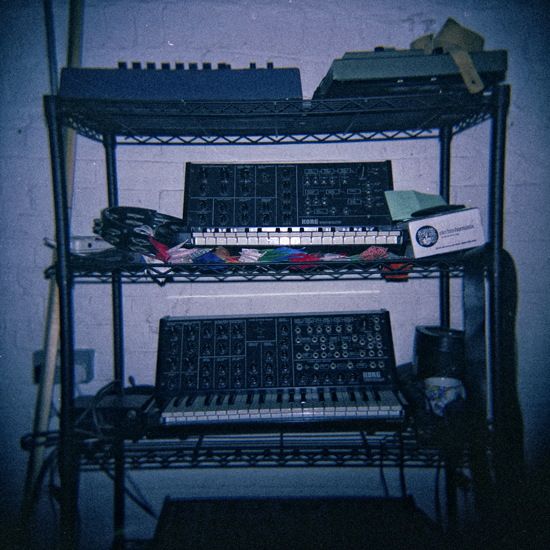
This starts laid-back and reflective, probably one of the most mature-sounding pieces The Horrors have ever written. Bass and cymbals eddy around hints of brass… and then, suddenly at 1.45 it turns into a thrashy, guitar piece that reminds me of something… an English Smashing Pumpkins maybe? Another hands-aloft chorus – there’s a definite element here of the Horrors appropriating laddish sounds for the fey.
Then in ‘Endless Blue’, it’s interesting. The guitar is pretty heavy on that one, almost thrashy. It felt like the most guitar-y thing you’ve done in a long time.
JH: Yeah. Having our own studio, I discovered the fact that you can play more than ten guitar tracks on a record. And I was just experimenting.
TF: There were lots of mics.
JH: Yeah, especially because here that door opens up and there’s a stairwell up there and I’d come in on a Sunday and the church next door would be going mental, and I wanted to record them a bit.
One of those charismatic churches?
JH: Yeah, but they used to be exorcising babies. But when they weren’t making a load of noise, you could put mics all around the building and it would be loud enough, and it’s great because the corridors would resonate. It just used to freak you out. I’d be playing through things and go upstairs where he was working, and I’d forget about the track and it would just be deafening.
Has it been quite fun having a place where you can make just a massive racket? Or is it battle between you and the exorcisms?
TF: Oh, no. We win the battle. (laughs)
JH: It’s just been nice to do whatever you want.
‘Dive In’
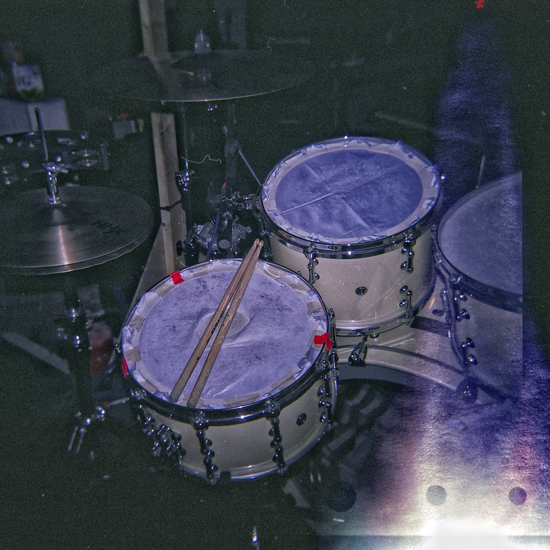
And speaking of things that the lads like, the rhythm of ‘Dive In’ is an almost baggy lollop. How the heck do you do the faux-Manc bowling-ball-down-the-kecks walk in those trousers walk lads? But to say that this is a pitch for disenfranchised ‘Roses fans would be a mistake. It’s a heady number, almost in conflict with itself: Faris’ vocals imbued with an air of vulnerability against the restrained menace of the rest of the track.
JH: I remember when we wrote ‘Dive In’ at the Gun Factory I was excited because I thought we’d never written something with that kind of feeling. It’s quite apocalyptic, and we spent a lot of time being as apocalyptic as possible.
TF: It’s like a sweet helplessness. It’s helplessness, but you don’t actually mind it.
JH: And it’s not particularly masculine or aggressive.
An acceptance of fate?
TF: Yeah, right.
JH: It’s very accepting.
TF: I’ve seen this in tons of films that describe drowning as a, not enjoyable, but a peaceful experience and it’s kind of like that.
JH: It’s been a while since we first started playing it live, and every time we hit that chorus, the exact same feeling happens, which is actually what we want to convey with music. Proper emotions.
There are quite a few watery references in the names of tracks.
TF: Yeah, and the lyrics. I was reading through them last night, actually.
Was that something that just unconsciously happened?
TF: You’d have to ask Faris because I don’t want to say this about his lyrics and have it not be true, but I guess underwater, in space, flying…all those feelings are quite similar, aren’t they? Movement and motion works just as well in water as it does in the air. Space is another one I really like. Space-themed music or anything kind of futuristic.
I think the Horrors are quite a cosmic band these days
JH: Definitely. Very cosmic.
‘Still Life’

Simple Minds! The one that sounds like Simple Minds! This, as we said when the track was released, is not a bad thing at all, and shows that The Horrors have an air for the grandiose that so few of their contemporaries can be doing with. It also shows that, for all the accusations that they’re a bunch of poncing fashionistas, they’re a group entirely out of step with the current vogue for all things lo-fi. If Alexis Petridis’ Guardian review of Suede’s Dog Man Star asked where the bands capable of emulating is bravura are today, then The Horrors’ go someway to answering that question, though perhaps it’ll only be emphatically done on their next album. Thinking about the studio itself, how did you put the gear together?
JH: We spent money on the best microphones so we knew it’d be recorded properly and then we could go and mix it somewhere where they had fancy stuff, rather than spending six grand on flanges.
TF: You can spend so much money on desks. And people we know who have their own studios have really nice desks and mixing rooms and control rooms but really small live rooms. Our favourite studio was Ben Hillier’s The Pool, which was just one really huge room full of really exciting equipment. That’s when I got into synths because they had synths there, I’d never got my hands on them before. That environment was really inspiring.
‘Wild Eyed’
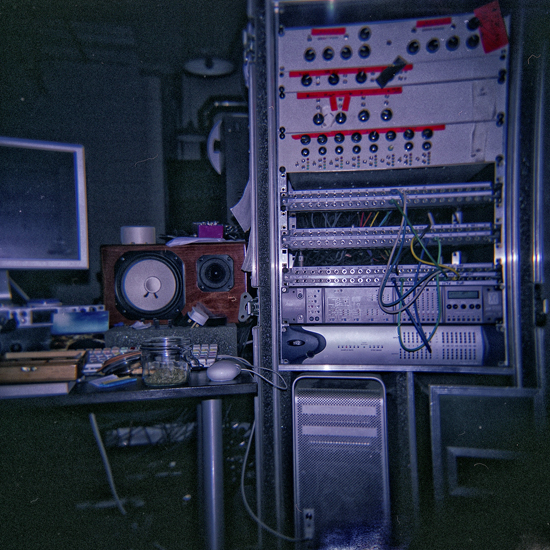
Another graceful track. It begins with Faris murmuring "I know all your secrets, I know all your lies" over densely layered guitars and synth parts, along with what sounds like a melodica. Like much of Skying the production is pretty thick and brooding. Rather brilliantly, a cracked-sounding brass refrain breaks through the clouds, repeats, repeats and repeats a few times, before the track ends. It’s clever experimentation in what is still essentially a big-sounding pop album.
I really like brass when it’s either something pretending to be brass or it’s treated brass that becomes percussive
TF: We did talk about brass. But listening to hip hop, I really like hearing really great brass samples that are really simple. I never liked brass when it was really in your face and over the top, but there’s a tasteful way of doing it, and that’s on a few tracks actually, but it has a very emotive sound. It’s close to singing.
JH: I remember bringing in loads of things like hip hop with brass and saying ‘Tom, this would be great on guitar.’ He said ‘Yeah, you need to learn to play a brass instrument. (laughs)
So how did you do it on the record?
TF: Some of it is sampled, some of it is live, and some of it is on mellotron. It was just a real mishmash of stuff. The live stuff was great. It was great to see if we could do it. We had some of the world’s finest trumpet players playing parts we’d been playing on keyboards.
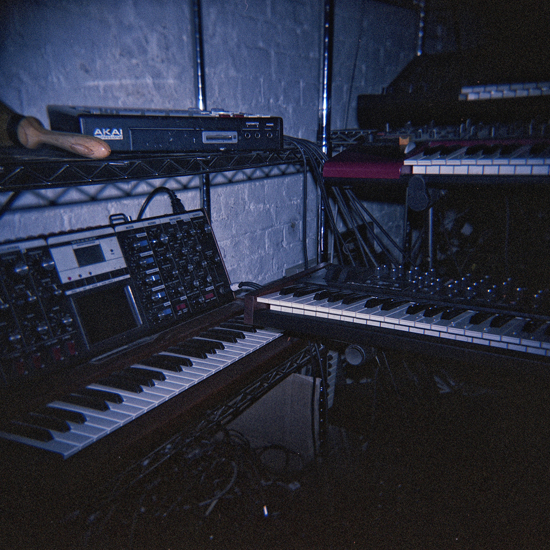
How did you track them down?
TF: An arranger called Nick Grimshaw was recommended to us by Jeff and Craig, and he was involved in a lot of stuff, a lot brass-themed. So he came down and met us and really liked the tracks and he did them.
JH: What he made of them was pretty great. We’d just be sending him keyboard things of us playing all the things at once and he’d say ‘Quite a strange harmonic structure you’re using.’
TF: Before I’d actually gone and seen how it was all done, I wasn’t really sure how you arrange brass, different brass instruments and different tones. But now after seeing it, I can translate that really well using mellotron sounds, so that was really exciting. It’s not as bandied about these days, but arrangers were people who took melodies and chose what instruments to play them on and how to make that work, and we understand that a lot more now.
If the last album was the album where you learned about producing by watching Geoff Barrow, is this the album where you’ve learned about arranging?
JH: It was a baptism by fire, really.
TF: We’re always learning. I think people who don’t hunger to learn more I find quite bizarre because I always want to know more and improve.
JH: I guess we have a lot of control. If you’re left to your own devices, you’ll learn.
‘Moving Further Away’
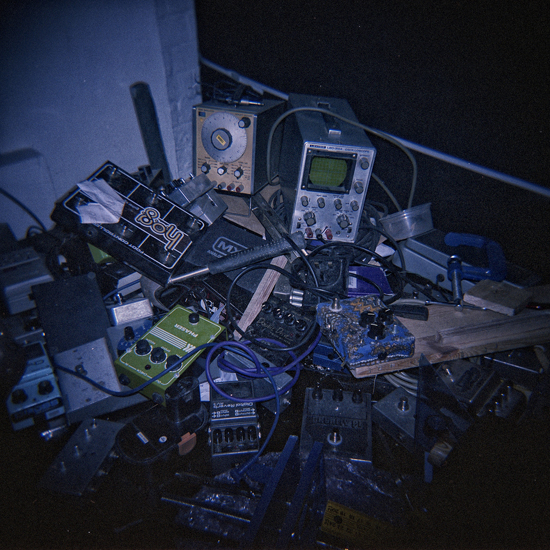
When The Horrors announced their evolution from a shambolic garage pop group to the five young chaps who made Primary Colours, it was by putting the sublime Neu!-inspired ‘Sea Within A Sea’ onto their website. Well ‘Moving Further Away’ is a similar sort of song, though the band are wisely keeping their powder dry for now. It’s a superb euphoric dirge, seeming to have about four different, wonderful songs within its near-nine minutes and features seagulls battling synths in the breakdown. One of the best things I’ve heard all year.
‘Moving Further Away’ I think is my favorite song, because after listening to the album a few times it’s just this ludicrous, exuberant pop banger with this massive chorus, and it may be a slight hoodwinking because it is so pop. But this is one that was written down in the countryside and recorded up here?
TF: Josh was really happy when we recorded the guitars because it just worked really, really well. I like when you capture a moment and get it to record.
JH: It’s very laid back.
That was after one of your big dinners, then? Too much wine with you dinner and you just started playing it?
JH: Pretty much. (laughs)
‘Monica Gems’

A great choice to follow ‘Moving Further Away’, this is perhaps the most straightforward, glammy track on the album – Faris doing a "wah ha hawoooo" Brett Anderson turn over raggedy backing vocals from his bandmates "don’t you know you’ll be wasting your time" that sound like the sort of thing the dirty dogs of Grinderman come up with. One wonders if the track is named for the wholesale jewellers on Berwick Street?
JH: With the guitars on ‘Monica Gems’ I had this really great idea of how I wanted them to sound and it wasn’t really working and there wasn’t enough noise or something, so I just said ‘Fuck it’ and plugged it in back to front. And all of a sudden it just went rrrrroaaaaar! And that was through Sexy over there.
Sexy?
JH: That’s my pet name for my love machine.
TF: Sexy is a home built modular guitar amp and synth. [see picture above]
You built all that? How’d you start putting that together?
JH: My dad’s a sheet metal worker, so I had him make the panels for me.
TF: It started when you found the amp head, do you remember?
JH: Oh yeah, I found the amp head so many years ago. I thought ‘I’ll build a new amp! This’ll be loads of fun!’
TF: We had to carry it around for ages.
JH: And I didn’t really want a new amp.
TF: It was always there. This broken amp head that you were never going to do anything with. And we said ‘Just throw it away!’ But yeah, I think that’s a really amazing thing for anyone to have done.
JH: It’s been a welcome addition.
How did you come out knowing what was going to work as you were building it?
JH: I don’t know. I understand electronics so I could see what the wave was going to look like, and it’s a bit hit or miss sometimes. I read an awful lot of stuff published in the 80s by synth gurus and adapted it. There’s loads of stuff that nobody really followed up on and I don’t know why. They’d bring up an idea of what it could be used for and then just leave it out there. And you can pick it up and change it a bit, but no one’s done that, really.
TF: It’s a bit forgotten, that attitude. There used to be a time – and Chris Carter talks about it a lot – if you were well-off you could afford huge modular synthesizers but if you were Tom, Dick, and Harry, you couldn’t really afford anything so you had to learn to make your own stuff, and there were electronics magazines and people would just put forward concepts for sound, and then things got cheaper and everything got easier and that went away.
TF: Chris Carter was so ahead of the times, ahead of techno.I actually cornered him at Coachella. I saw Throbbing Gristle and I wanted his opinion between two things what I should get, and he thought about it for a second and said ‘Why are you asking me this?’ I said ‘Because you’re one of the only people who can offer me a good and decent opinion.’
Were those kinds of people inspirations to you, then? People like Chris Carter?
TF: Yeah. It’s weird to talk about inspirations or ‘This person is an inspiration,’ because it definitely is but that doesn’t necessarily mean that it comes into our music in a conscious way. Definitely when I listen to his music – especially the more electronic Throbbing Gristle than Chris & Cosey – I just get off on that because the more you start to learn about that kind of music the more you learn about how it’s made and appreciate the process and the effort that goes into it. When I listen to his music and see the sequences and see the beats, you can just break it down, so that is really inspiring because you start to hear in other people’s music the method rather than just hearing the music. And you get to appreciate how hard it was as well when you actually try to go back to the same methods they were using.
‘Oceans Burning’
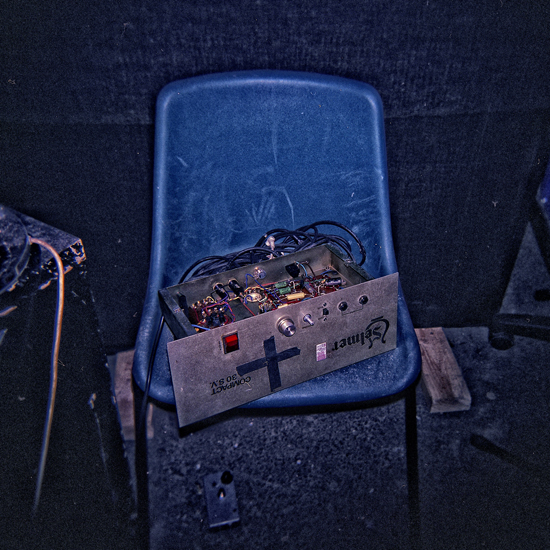
‘Oceans Burning’ is, like ‘Moving Further Away’, a song of many moods. It starts pretending to be a lovely, cliffs-in-the-sunset closer, again there’s a Suede feel to this – Skying shares a druggy urban romantic mentality with Dog Man Star, though this is more a younger cousin of something like ‘Pantomime Horse’. The surprise comes when it twists into a Lady Macbeth wandering in a castle thoughtful section, before giving away to a more cosmic jam at the end. And that’s it. Skying is, without doubt, a very curious record. Quite what those who still wish The Horrors were still playing ‘Count In Fives’ with enough energy to re-backcomb Josh Heyward’s hair will fit in is anyone’s guess, but this record is not for them. It’ll still no doubt get right up the noses of those obsessed with the groups’ high-end schooling, or excellent attire. It’s not for them either. Skying is for all those who like a band who deliver their ambition, their confidence, their romance, their self-belief with a hint of panache. Alright, as with Primary Colours you can clearly hear influences and touchstones (though the band have a habit of denying them) but these gents are expert postmodernists, vapourising the past in order to create a lurid spirit and self-contained universe very much of their own.
How did you work out you wanted to finish the record?
TF: It sort of presented itself as being the finisher.
JH: Originally, it wasn’t so fleshed out. It was going to be this 30-second piece of music. And I think it was mainly Tom, that worked it out to more than that.
TF: It was definitely pushing all my melodic buttons. I was talking earlier about the way chord changes can affect you, and I was definitely working on all that. I was actually struck ill that day, it was really terrible. There were these amazing chords and this great vibraphone going all around and I was just lying on the sofa going ‘Why? Why?’
JH: I love that one, though. That’s great.
TF: It’s understated. There’s those chords on top of that really filthy guitar.
JH: I think we just powered through everything on that one. We showed all our best tricks. It’s kind of the problem of being in a band or writing together. One person is like ‘This is really good,’ and another person says ‘It could be a little bit better.’ You wouldn’t just be like ‘Here’s this really loud part to take up lots of space,’ and someone else goes ‘Here’s an even louder part to take up more space over it.’
TF: And it’ll complement your part so well. (laughs)
JH: We can’t do that to each other.
TF: It’s a little bit of fencing.

